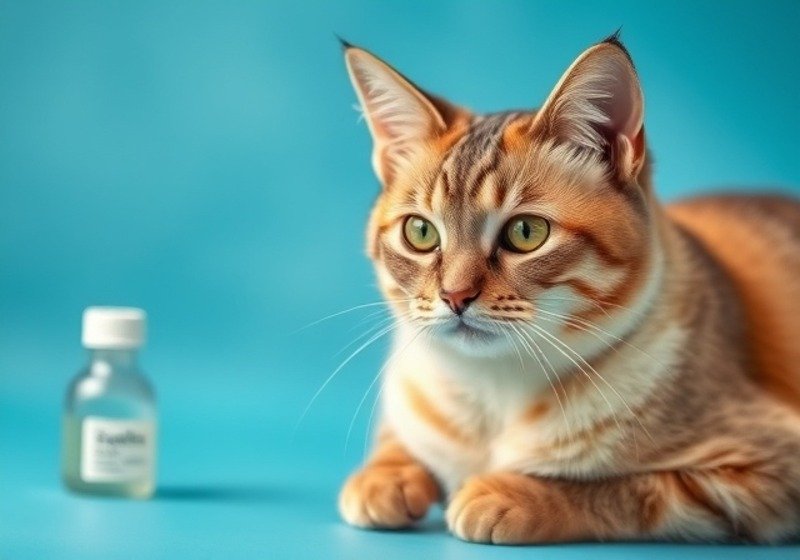As a loving pet owner, you want the very best for your feline companion. When your cat is under the weather, you’re likely to explore every avenue to help them feel better. This often leads to investigating alternative therapies, like homeopathy, a system of medicine that uses highly diluted substances to stimulate the body’s natural healing processes.
But is homeopathy truly a viable option for cats? Should you consider this alternative approach to treating your cat’s health concerns?
Understanding Homeopathy: A Different Approach
Homeopathy, founded in the late 18th century by Samuel Hahnemann, is a system of medicine that uses highly diluted substances to stimulate the body’s natural healing processes. The principle behind homeopathy is “like cures like,” meaning that a substance that causes certain symptoms in a healthy person can be used in a diluted form to treat those same symptoms in a sick person.
The Dilution Factor: Homeopathic remedies are typically diluted to a very high degree, often beyond the point where there are any actual molecules of the original substance left in the final product. Homeopathic proponents believe that the energy or “vibration” of the original substance remains in the diluted form, and this energy is what stimulates the body’s healing response.
The Controversy
Homeopathy has been a source of much debate and controversy, with proponents claiming its effectiveness and critics questioning its scientific basis.
- Proponents of Homeopathy: Proponents of homeopathy argue that it’s a safe and effective alternative treatment option, especially for conditions that might not respond well to conventional medicine. They believe that homeopathic remedies are gentle on the body and can help address the root cause of illness.
- Critics of Homeopathy: Critics of homeopathy argue that there’s no scientific evidence to support its claims of effectiveness. They believe that the high dilutions used in homeopathy mean that there are no actual molecules of the original substance present, so it cannot have a physiological effect. They also worry that homeopathic remedies may delay conventional medical treatment, potentially leading to more serious health outcomes.
Homeopathy for Cats: A Look at the Evidence
While there’s ongoing debate about the effectiveness of homeopathy for humans, there’s even less scientific evidence to support its use in animals.
- Limited Research: There is limited research on the effectiveness of homeopathy for cats, and much of the available research is inconclusive. Many studies have been criticized for their small sample sizes, lack of control groups, or methodological flaws.
- Lack of Regulation: Unlike conventional veterinary medicine, there is little regulation of homeopathic remedies for animals. This means that the quality and effectiveness of these products can vary significantly, and it’s difficult to know exactly what you’re getting.
A Case Study: The Tale of Whiskers
Whiskers, a 5-year-old Maine Coon, had a history of occasional digestive upset, but his owner, David, was hesitant about using conventional medications. He decided to try a homeopathic remedy for Whiskers’ digestive problems.
“I was looking for a more natural approach,” David says. “I found a homeopathic remedy for digestive issues that seemed safe and gentle. I started giving it to Whiskers, but I didn’t see any real improvement.”
- Potential for Harm: While homeopathic remedies are typically considered safe, there is a potential for side effects, especially if they’re not properly formulated or administered. For example, some homeopathic remedies might contain substances that are toxic to cats.
Should You Consider Homeopathy for Your Cat?
The decision to use homeopathy for your cat should be made in consultation with your veterinarian. They can assess your cat’s individual needs and recommend a treatment plan that’s safe and appropriate.
Here are some factors to consider:
- Veterinary Approval: Get your veterinarian’s approval before giving your cat any homeopathic remedy. They can help you choose a safe and effective product for your cat’s individual needs.
- Underlying Conditions: If your cat has a serious medical condition, it’s essential to seek conventional veterinary care. Homeopathy should not be used as a replacement for traditional veterinary treatment.
- Understanding the Risks: Be aware of the potential risks of using homeopathic remedies for your cat. They may not be effective, and there is a possibility of side effects.
Alternatives to Homeopathy
If you’re looking for alternative approaches to conventional veterinary medicine, consider these options:
- Herbal Remedies: Herbal remedies have been used for centuries to treat a variety of ailments in both humans and animals. However, it’s essential to consult a veterinarian before using any herbal remedies for your cat.
- Acupuncture: Acupuncture is a traditional Chinese medicine technique that involves inserting thin needles into specific points on the body. It’s believed to stimulate the body’s natural healing processes.
- Aromatherapy: Aromatherapy uses essential oils to promote healing and well-being. However, it’s important to note that some essential oils can be toxic to cats, so consult your veterinarian before using aromatherapy for your cat.
Conclusion:
The decision to use homeopathy for your cat is a personal one. While it’s a popular alternative therapy, there is limited scientific evidence to support its effectiveness in animals. Consult your veterinarian to discuss the potential benefits and risks of using homeopathy for your cat. They can help you determine the best course of action for your furry friend’s health and well-being.

Leave a Reply